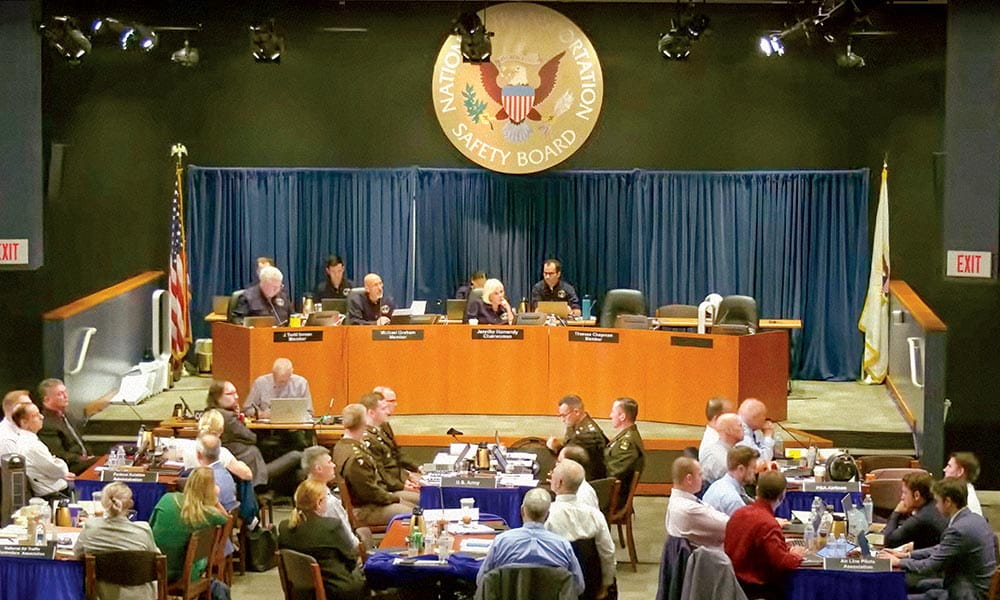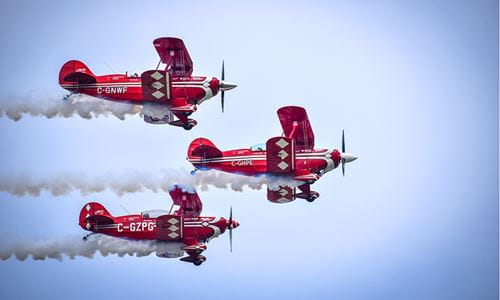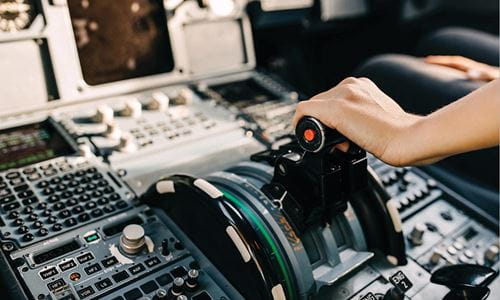
Expertise to PSA Flight 5342 Investigative Hearing

The aviation community suffered a devastating loss on Jan. 29, 2025, when an Army Black Hawk helicopter collided with PSA Flight 5342 above the Potomac River near Washington National Airport. The lives of all 67 individuals aboard both aircraft were lost, including ALPA members Capt. Jonathan Campos and honorary Capt. Sam Lilley, the first officer on the flight. This tragedy marked the first fatal accident involving a commercial passenger airliner in 16 years.
Since ALPA’s earliest days, one of its core functions has been to promote aviation safety. The need to address safety issues was one of the primary reasons that the Association was founded in 1931. Nearly 95 years later, this devastating accident serves as an important reminder that the union’s aviation safety efforts never cease.
Within hours of the accident, ALPA pilots and staff were deployed to the crash site and immediately engaged with the NTSB as a party to the investigation, bringing the unique line-pilot expertise to the process to assist NTSB investigators.
As part of the ongoing investigative process, the agency conducted a comprehensive 30-hour hearing from July 30 through August 1 at its headquarters in Washington, D.C. The hearing concentrated on several critical issues uncovered to date in the investigation, including the use of helicopter routes near the airport, known performance issues with the altimeters on the Army helicopter, and air traffic control staffing, along with other potential factors that could have contributed to the accident.
The NTSB and designated parties spent three days listening to witness testimony and reviewing thousands of pages of evidence and exhibits. ALPA’s accident investigation team, led by Capt. Daniel Mullin (PSA), had the opportunity to question technical panels composed of experts from the FAA, the U.S. Army, and other sectors of aviation. As the Association’s technical spokesperson, Mullin was able to draw on the union's vast subject-matter expertise in examining the factors that may have contributed to this tragedy.
ALPA’s Ongoing Commitment
ALPA’s involvement extends beyond the NTSB’s technical investigation. While it will be several more months before the agency issues its final report on the probable cause and safety recommendations, the Association continues to be a leading voice in calling for the modernization of the U.S. air traffic control system. The union has been working with the administration, Congress, and industry stakeholders to secure long-overdue investments needed to make the system work efficiently and strengthen safety and operational security.
Immediately following the PSA accident, the FAA took action and restricted helicopter operations near Washington National Airport. ALPA applauded the action and continues to support the NTSB’s urgent safety recommendation to make these restrictions permanent. This critical safety enhancement removes unnecessary complexity from one of the nation’s most congested and challenging airspaces and is a step in the right direction.
Moving Forward
Aviation accidents were a common occurrence at the time of the Association’s founding, as safety standards hadn’t yet evolved to a point that adequately addressed the threats to pilots and their passengers.
Recent tragic events have underscored the critical importance of maintaining the rigorous safety standards that have been achieved over the past nine decades. ALPA remains committed to supporting safe and efficient airport operations and will continue to advocate for operational procedures that prioritize both safety and efficiency within the national airspace system.
The aviation industry’s commitment to safety requires constant vigilance and continuous improvement, and each accident investigation provides critical insights that help to strengthen aviation safety and keep air travel the safest mode of transportation.
The families who lost loved ones on January 29 deserve nothing less than ALPA’s complete commitment to understanding what happened and making the changes necessary to ensure that it never happens again.












